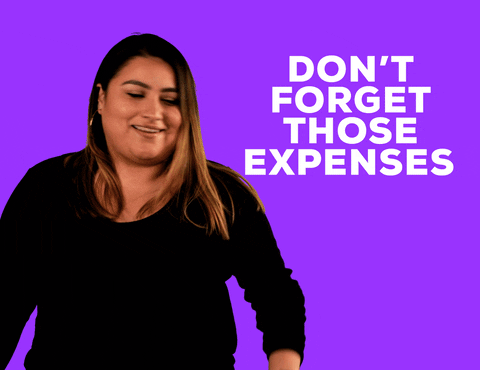Written by Leading Casting Director, Jeffrey Dreisbach!
Many actors are surprised when I tell them that they are the CEO of their company. It is as if they have spent most of their creative life working on their talent with little time spent on their business plan. A business plan is something every professional should have to keep their vision clear. I don't mean literal vision; I mean seeing their career journey as a process and growth opportunity. So, let's take a moment and look at being a responsible CEO. First, your business plan must have a source of capital. Meaning, the financial ability to support the plan. Now, for many actors that is a survival job. That might be enough for your success. Do you have enough financial resources to put your plan into action? Next, every actor business plan has the following elements, infrastructure, marketing, and training. This crucial investment strategy varies from actor to actor depending on their skill level and area of interest. Let's look at ten actor investment strategies that can affect your investment for the better.
1. Picture, resume and postcard -

Are they new, ready, and interesting? The postcard is still quite useful in getting the word out about projects classes events that are taking place in your acting life.
2. The actor's wardrobe and shoes - Having a separate audition wardrobe is really smart. Having six or seven items that you only wear for auditions makes sense. You never want to dress in costume but suggesting the role with a few choice items that you only wear when auditioning is key. The same goes for shoes. Think of the 3D’s: dance dress and daily. Knowing what you look great in, removes any stress about what to wear for that project.
3. Your cell phone -

I suppose this goes without saying but your cell phone is now an essential tool for your business. You have a camera. You have a calendar that is constantly being updated. You can make and receive calls. You can provide updates on your social media. Each of these items can impact your career in a positive way.
4. Self-tape-recording equipment - In addition to your cell phone consider a tripod or selfie stick (self-standing), a microphone that clips to your shirt (lavalier), and some basic lighting for your auditions. Do not go crazy and spend tons of money on this. A clip on microphones is around $20 and you might have some lights that you can wrap in parchment paper for excellent diffused lighting. Finally, a little research on how to self-tape via YouTube can go a long way toward audition success.
5. Classes and seminars -
It goes without saying that continuing education is an investment foundation you cannot do without. What makes it so valuable is that you can learn new skill sets that will grow your job potential. If you get nervous at auditions, then taking an audition class make sense. If you are out of practice with your singing, then find a voice teacher. There are tons of options available to you. The only excuse you have is your own insecurity. On a slightly different note, being with other actors in a classroom setting can be a supportive positive experience that outweighs any insecurity you might have. After all we are a community of creative individuals trying to get better.
6. Resource Materials - Make sure you set aside some funds for books, drop box, actors’ access and backstage.com or any other tangible assets that can grow your career. I know it might sound like old school thinking but I still prefer holding a book in my hands that I can easily read many times rather than a digital readout of the same information. Just make sure you will use everything you choose to purchase.
7. Marketing -

Website, blog, social media, flyers, postcards, and stationery are all part of getting the word out about you. Each of these materials will become useful tools to promote your career. Invest in your marketing and have a strategy in place for optimum results.
8. Musical theatre expenses - For those of you who are investing in musical theatre performing, you already know that there are additional expenses for you. Your book for example requires research and study with an accompanist. If you are auditioning on zoom, for example, you might need the best quality sound (speakers) for your track. It is challenging to stay current with what is happening in the musical theater arena and distance technology. Even small adjustments can produce solid results.
9. Transportation expenses -

OK, I know this might be too detailed, but it is worth mentioning, I think. No matter where you are, once we are back to normal after COVID, planning your transportation as well as additional miscellaneous expenses are something to consider. Part of your investment is being able to be available at moment’s notice. FIY, there might be other unanticipated expenses to be ready for.
10. Personal development - Assuming your life situation is good (in other words, food, shelter, clothing, human interaction) actors should focus on their personal growth as well. For example, having a workout routine, whether it's with a gym or on your own, is essential to your career progress. Perhaps therapy can benefit you as well. (Knowing as much as you can about yourself makes sense for an actor). Also, having an outside activity, something not actor related, will do wonders for you. Taking care of your inside and your outside should be part of your acting investment plan.
Have you heard the acronym, ROI?
About Jeffrey Dreisbach:
Casting Partner, Jeffrey Dreisbach (McCorkle Casting, LLC) has been working on theater, film and television projects for over 12 years. He began his show business journey in New York as an actor accumulating film, television and theatre (Broadway, off-Broadway, Regional) credits for 20 years. Hi is the author of “Conversation Pieces out of the Studio, The Voiceover Workshop for Professional Actors” (Dogear Publishing). His podcast, Casting Actors Cast has over 50,000 downloads worldwide. Jeff has dedicated himself to training, teaching, and sharing his experience with actors at colleges, Universities, and studios throughout the country. You can catch his blogposts “Jeff’s Jots”every other week at Acting & Voice Studios.
Check out Jeffrey's podcast here: castingactorscast.com and the YouTube channel Casting Actors Cast.


